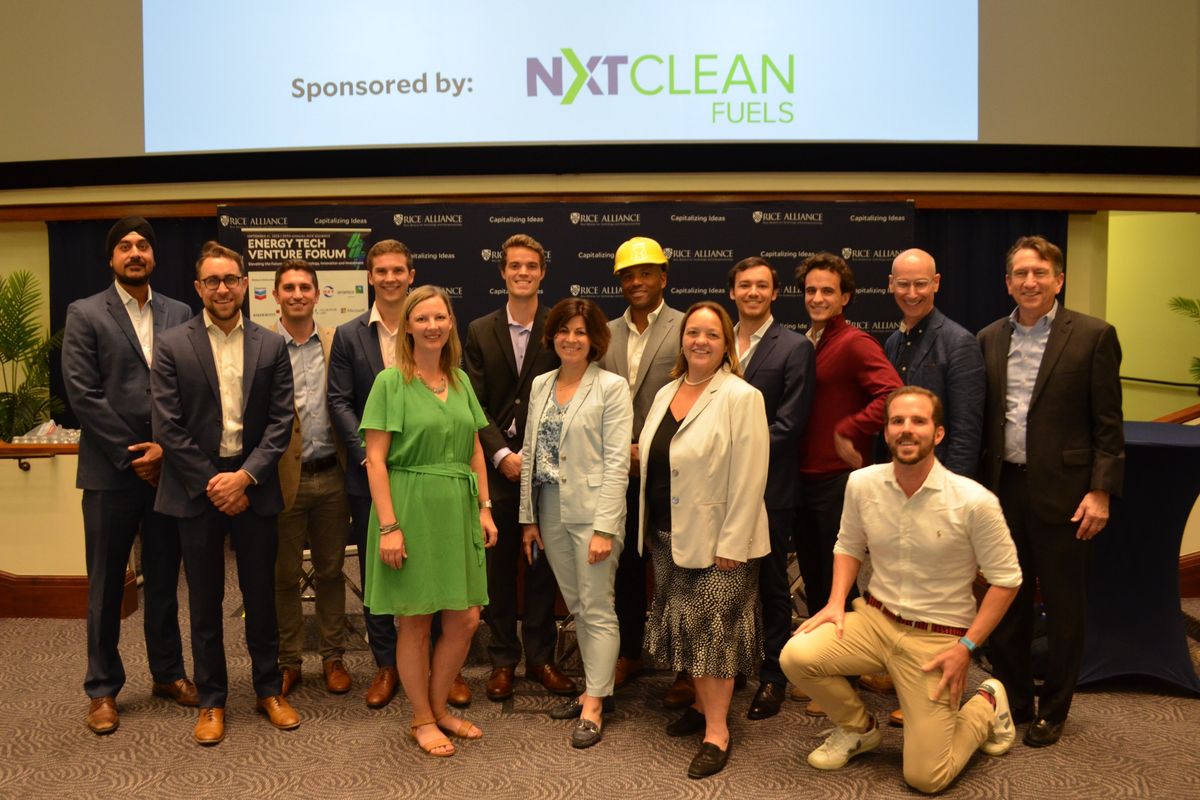Exclusive: Houston clean energy accelerator names 4th cohort of early-stage tech companies
coming soon to Hou
The Rice Alliance Clean Energy Accelerator has named 12 early-stage energy technology companies to its latest cohort.
The companies, which hail from six states and two countries, are providing solutions across carbon management, advanced materials, hydrogen, solar, and more. The program, which operates in a hybrid capacity based out of the Ion, will run for 10 weeks beginning July 9 and culminating in a demo day alongside the 21st Rice Alliance Energy Tech Venture Forum on September 12. Throughout the duration, the companies will come to Houston three times.
"As Houston’s preeminent energy startup accelerator, this is an open door to the region’s energy ecosystem for ventures from around the world and puts them through a rigorous curriculum to bolster their fundraising efforts, prepare them for accelerated adoption into the marketplace and expand their connections for potential pilots, partnerships and sales," per a Rice Alliance news release.
This cohort's executives-in-residence, or XiRs, include Tim Franklin-Hensler, John Jeffers, Ritu Sachdeva and Nick Tillmann. In addition to these innovators — who bring their expertise, mentorship, and strategic growth planning — the program is ed by the Rice Alliance’s Kerri Smith and Matt Peña.
Class 4 for the Rice Alliance Clean Energy Accelerator includes:
- 1s1 Energy, based in Portola Valley, California, develops electrolyzers with boron-based materials so that utilities and heavy industry can produce low-cost green hydrogen to decarbonize existing and future businesses.
- Houston-based Capwell provides a cost-effective, modular, and easily transportable system that eliminates methane emissions from wells for state governments and oil and as companies.
- CarboMat, from Calgary, Alberta, provides a clean technology that produces low-cost, sustainable, and mid-tier grade carbon fibers at a 60 percent reduced production cost and 50 percent reduced GHG emissions to composite manufacturers in industries that require large volumes of inexpensive carbon fibers for production of commodity grade products.
- Cleveland, Ohio-headquartered Corrolytics offers cutting-edge technology that detects corrosion on-site and in near real-time, providing accurate insights into microbial corrosion and general corrosion.
- Geolabe, from Los Almos, New Mexico, provides an automated methane monitoring system that helps organizations measure environmental performance and introduce and prioritize remedial actions.
- Kaizen, which operates in Tomball just outside of Houston, provides hydrogen based microgrids that enable fleet electrification at sites that are grid constrained or off grid. The solutions emit no local emissions and reduce global emissions.
- Los Angeles-based Mitico offers services and equipment to capture carbon dioxide with a patent-pending granulated metal carbonate sorption technology captures over 95 percent of the CO2 emitted from post-combustion point sources.
- OceanBit, headquartered in Honolulu, provides ocean thermal energy technologies and power plants that delivers abundant, affordable, base load power to utilities and companies who need a firm, dispatchable, and 24/7 carbon-free source of electricity.
- From Ontario, Canada, QEA Tech provides detailed building envelope energy audits using drones, thermography, and proprietary AI based software.
- Houston-based Sensytec offers patented sensors, delivering real-time, accurate material performance data of concrete and advanced building materials.
- Vroom Solar, based in Springfield, Missouri, provides Smart Solar Management technology that optimizes solar and optional AC power differently at a lower cost and smaller footprint for solar customers who need affordable, efficient, and user-friendly power anywhere.
- VulcanX, from Vancouver, Canada, provides hydrogen and solid carbon to gas utilities, steel manufacturers and ammonia producers who require low-cost and low-emission hydrogen.
Since launching in 2021, the Clean Energy Accelerator has accelerated 43 ventures that have raised more than $166 million in funding. According to the program, these companies have piloted their technologies, connected with investors, created jobs, and many relocated to Houston.
The 2023 cohort included 15 clean energy companies.






 Ten companies from around the world were named as most promising. Photo courtesy of Rice
Ten companies from around the world were named as most promising. Photo courtesy of Rice